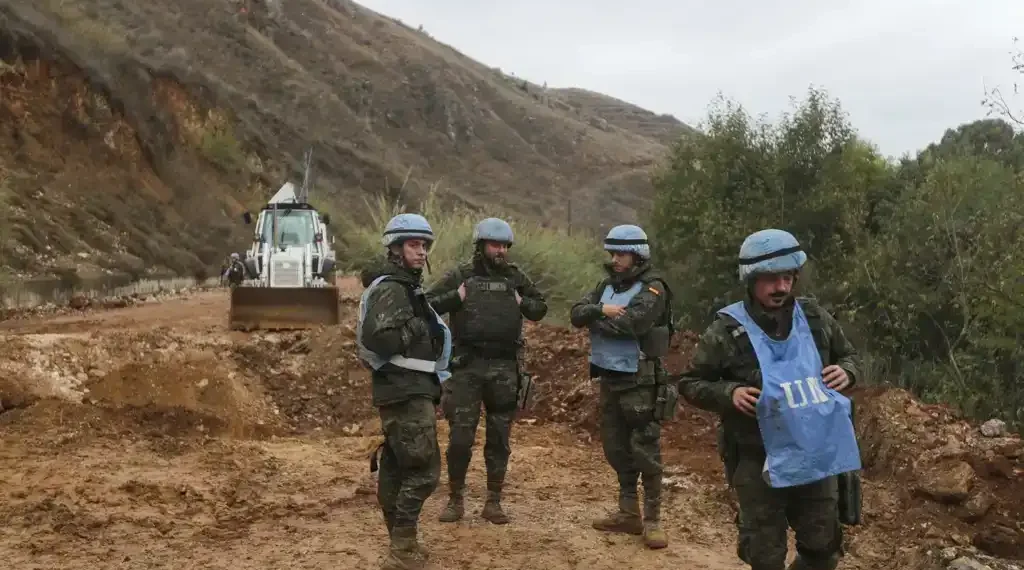U.S. Push to End UN Peacekeeping in Lebanon Meets Strong European Resistance
Published: August 17, 2025 | 14:30
The Trump administration is pressing to end the United Nations peacekeeping mission in Lebanon, a move that has drawn sharp opposition from key European allies. The dispute has reopened long-standing transatlantic tensions, particularly with France, Britain, and Italy, and raised concerns about stability in southern Lebanon and the wider Middle East.
Why UNIFIL Matters
The U.N. Interim Force in Lebanon (UNIFIL) was first deployed in 1978 after Israel’s invasion of southern Lebanon. Its role expanded in 2006 following the war between Israel and Hezbollah. Today, about 10,000 peacekeepers patrol the southern border alongside roughly 6,000 Lebanese Armed Forces (LAF) soldiers.
UNIFIL’s mandate is set to expire at the end of August, pending renewal by the U.N. Security Council. Supporters view the mission as a stabilizing force, but the Trump administration argues it is ineffective, costly, and unable to curb Hezbollah’s growing military presence.
Washington Pushes for a Phase-Out
U.S. officials say the administration is pushing to wind down UNIFIL within six months. Secretary of State Marco Rubio recently approved a plan to cut American financial contributions and reduce the mission’s size.
Officials describe UNIFIL as “a waste of resources” that delays efforts to empower Lebanon’s army to secure the border on its own. The plan reflects the administration’s broader strategy of reducing U.S. spending on international missions and challenging the role of multilateral institutions.
European Allies Push Back
France and Italy, two of UNIFIL’s largest troop contributors, strongly oppose a rapid withdrawal. Diplomats warn that ending the mission too quickly could create a power vacuum, which Hezbollah would likely exploit.
A senior French official, speaking on condition of anonymity, said Lebanon’s army is still too weak to manage the border alone. France also cited the U.N. withdrawal from Mali as a cautionary example, where Islamist militants gained ground after peacekeepers left.
France has proposed a one-year extension of UNIFIL’s mandate without a fixed withdrawal deadline. U.S. officials, however, want a clear timetable, setting the stage for tough negotiations at the Security Council.
Israel’s Divided View
Israel has long criticized UNIFIL for failing to stop Hezbollah’s weapons buildup. In recent years, Israeli forces discovered cross-border tunnels and hidden weapons near UNIFIL patrol areas.
“UNIFIL has been damaging with regard to disarming Hezbollah,” said Sarit Zehavi, a former Israeli military intelligence analyst. Still, Israel has reluctantly supported a temporary extension, fearing greater instability if the mission ends abruptly.
Lebanon Urges Continued Support
Lebanon has called on the international community to maintain the mission. Officials argue their army is overstretched and cannot fully secure the border without U.N. backing.
“UNIFIL may not fulfill 100% of what Western powers or Israel expect. But for Lebanon, their presence is important,” said retired Lebanese Army Gen. Khalil Helou.
The United Nations also supports the mission. Spokesman Stephane Dujarric confirmed that peacekeepers continue to uncover unauthorized weapons, such as rocket launchers and mortar rounds, which are reported to the Lebanese army.
Searching for Compromise
Diplomats are exploring a middle ground, such as reducing the size of the force while upgrading its surveillance technology to monitor southern Lebanon more efficiently. This approach could cut costs while maintaining oversight in a tense border region.
“UNIFIL exists to help both parties implement its mandate, and the final decision lies with the Security Council,” said UNIFIL spokesperson Andrea Tenenti.
A Transatlantic Divide
As the August deadline approaches, the dispute highlights broader differences between Washington and its European allies. While the U.S. pushes for scaling back international peacekeeping, Europe remains committed to U.N. missions as essential stabilizing tools in fragile regions.
This article was rewritten by JournosNews.com based on verified reporting from trusted sources. The content has been independently reviewed, fact-checked, and edited for accuracy, neutrality, tone, and global readability in accordance with Google News and AdSense standards.
All opinions, quotes, or statements from contributors, experts, or sourced organizations do not necessarily reflect the views of JournosNews.com. JournosNews.com maintains full editorial independence from any external funders, sponsors, or organizations.
Stay informed with JournosNews.com — your trusted source for verified global reporting and in-depth analysis. Follow us on Google News, BlueSky, and X for real-time updates.














